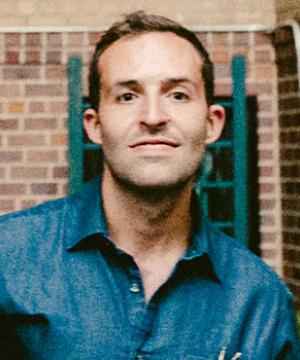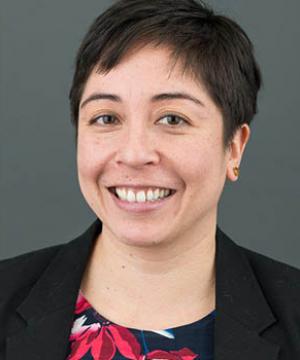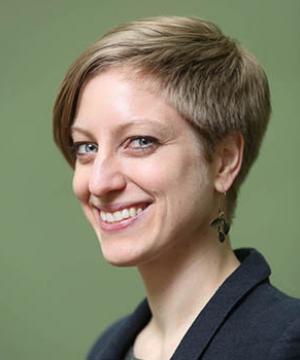Columbia Students Honored for Environmental Law Writing
Anthony Raduazo ’18 and Sarah Kam Awarded Top Prizes in New York State Bar Association Essay Contest; Emily Hush ’18 Wins Stipend from American College of Environmental Lawyers
Three former students of Columbia Law School Professors Michael B. Gerrard and Anu Bradford were honored recently for outstanding legal writing on environmental law issues.
Anthony Raduazo ’18 and Sarah Kam, who earned her master’s degree in sustainability management from Columbia University’s Earth Institute last spring, tied for second place and first place, respectively, in the New York State Bar Association Environmental Law Section’s Professor William R. Ginsberg Memorial Essay Contest. Raduazo and Kam both took Gerrard’s Advanced Climate Change Law seminar.
“Year after year, our students have excelled in these environmental law writing contests,” says Gerrard, who directs the Law School’s Sabin Center for Climate Change Law. “They are proving themselves up to the massive task that will be faced by the next generation of environmental attorneys.”
Raduazo’s paper, “State Autonomy and the National Outer Continental Shelf Oil and Gas Leasing Program,” argues that coastal states should have a say in any potential drilling that takes place off their shores given the enormous risks involved in such projects. Raduazo goes on to assess the tools at states’ disposal to exert greater control over the offshore drilling process and the various pitfalls states must look out for in responding to the Department of Interior’s proposal.
“I became interested in writing about the Department of Interior’s plan to open large swaths of the American coast for offshore oil and gas drilling when I first read about the proposal in the news earlier this year and after reading about many states’ oppositions to the plan,” says Raduazo, who is now clerking on the U.S. Circuit Court of Appeals. “The states’ initial reactions to the proposal appeared to raise difficult questions of federalism and federal preemption under a number of federal statutes, including the Outer Continental Shelf Lands Act and the Coastal Zone Management Act, so—after consulting with Professor Gerrard—I decided to dig a bit deeper.”
Kam’s article, “Compelling the EPA to Regulate GHG Emissions Under the Act to Prevent Pollution from Ships,” notes that, although the technical capacity to reduce greenhouse gas emissions (GHGs) from ships exists, so far those technologies have only been implemented on a voluntary basis. Kam argues that an international agreement will be necessary to reduce greenhouse gas emissions in the shipping industry.
“Since shipping is a global industry, I was excited that this topic also had an international environmental law aspect,” says Kam, adding that this article allowed her to apply lessons from her class with Gerrard and from a course on international environmental law she took with the Sabin Center’s 2018 David Sive Visiting Scholar Susan Biniaz, a former Department of State lawyer who has worked on climate change negotiations.
Meanwhile, Columbia Law School graduate Emily Hush ’18, a law clerk at Debevoise & Plimpton in New York City, was awarded the Stephen E. Hermann Environmental Writing Award by the American College of Environmental Lawyers (ACOEL) at the organization’s annual meeting in Jackson Hole, Wyoming. The award comes with a stipend of $3,500 for Hush and $500 for the submitting law journal—in this case, the Columbia Journal of Environmental Law, which in January published Hush’s paper, “Where No Man Has Gone Before: The Future of Sustainable Development in the Comprehensive Economic and Trade Agreement and New Generation Free Trade Agreements.”
In her paper, Hush, whose work was supervised by Gerrard and Bradford, explores how regulators can protect themselves in free trade agreements against claims by investors who are challenging environmental or sustainable development decisions that might adversely affect the investors’ interests.
“Environmental law is definitely still a passion of mine and attending the ACOEL conference to present my paper really made me feel excited and impatient to do environmental work,” says Hush, who is doing some work in this field at Debevoise. Hush has also previously written about environmental law issues, including on developing a model of international protection for environmentally displaced people in the Columbia Journal of European Law.
Columbia Law School students are regularly recognized for their achievements in environmental law. In 2016, Hush won first place at the highly competitive European Law Moot Court in Luxembourg, arguing a case that involved emissions trading. In 2017, three first-year students became the first Columbia Law School team to win the Jeffrey G. Miller National Environmental Law Moot Court Competition at Pace University (Raduazo was one of the team’s coaches). Students have also taken the top prizes in the New York State Bar Association’s Environmental Law Section essay contest for several years running.
# # #
Published on November 2, 2018


